I live in British Columbia, Canada (BC for short) and lately one of our health regions has been making news with the accusation that they are forcing mothers to sign a “breastfeeding contract”. There are articles out there declaring that women are being “shamed” for formula feeding and raising anxiety for women who have problems breastfeeding because of this sheet. The very first thing to be clear on is that it’s already been reported that this is an older document that hasn’t been used for a bit and that a new one is in the works with “better wording” (i.e., they heard that people were feeling bad and are aiming to fix the problem). I don’t know what they’ll change but I’ll reserve judgment on whether it’s an improvement or not when the new one is released (not to say I don’t think it could be improved, but you never know how these things go).
Onto the document itself… The document isn’t a “breastfeeding” contract, it’s a “Mother-Baby FEEDING Plan” (emphasis mine) and a “Parenting Decision-Making Tool” (you can see the full document in PDF by clicking here).
The bone of contention is that parents who select mixed or exclusive formula feeding have to acknowledge that they understand the risks stated on the first page of the document. This sharing of information is what is “shaming” and “anxiety producing”. I gotta say: I don’t get it. Isn’t it our job as parents to make our decisions with the available information? I understand how putting blinders on may be more reassuring, but if the risks mentioned outweigh the benefits of formula for you, then plan on breastfeeding. (Remember this is given to women before birth, not two months in.) If the risks don’t outweigh the benefits of formula for your family then check off the right box (mixed or exclusive formula) and move on. (Note: I could understand this being an issue if this were given to moms 2-3 weeks postpartum, but pre-birth?)
In fact, I’m going to take it one step further and say a form like this is actually a brilliant idea. When I read the page moms sign I think it’s great (although I don’t know it’s necessary to actually sign). There are families who use formula and don’t realize the risk of powdered formula for their premature babies. There are families who do not sterilize properly, putting their infant at an even higher risk. What this contract does, if used properly (and yes, I’ll talk about that), is allow nurses and health educators to focus on what each group of moms needs to learn. Moms who sign the exclusive breastfeeding contract can have support tailored to their needs including issues with supply, latch, etc.. Mixed feeding moms can be given information about how mixed feeding can be problematic for breastfeeding and how to overcome it (especially if the goal is long-term mixed feeding). And, as mentioned, formula feeding moms are given information on cost (because formula is free in the hospitals in this region), sterilization, and how it can influence the decision to breastfeed if mom changes her mind. If used right, people get the kind of support they need.
The main issue, as I see it, is how this is being used. Now, so far no reports are saying that nurses or lactation consultants or doctors are “shaming” mothers with it. Indeed, the mothers that have spoken out have been clear it’s the document itself that’s the problem. As one mother told CBC, “I received great care from all of the professionals I visited.” Another woman, whose doctor recommended formula because her baby was premature, said, “I found the form to be insulting and upsetting. It gave the impression I was putting my son at risk if I followed the doctor’s direction. It implied he would have a higher risk of getting cancer, even.” I hate to say it, but yes. Although very premature babies require a special formula, premature babies whose mothers are lactating and are large enough (typically 1500 grams) do not need supplementation unless mothers want it. There is no medical need outside of any individual circumstance. (To read up on this, you can check out this great piece from Dr. Jack Newman on the topic.) So by listening to this particular doctor, you are putting your child at higher risk. Is it a risk worth taking? Only you can answer that and once you do, your choice should be respected, just as you should respect the balance of risks and benefits you are taking.
This respect bit is where I want to end. One of the things I like about this form is that it should increase the likelihood that a woman’s choice is actually respected. You know mom has read the information and is making her choice. You may disagree with it, but now comes the issue of making sure she has the right information and support for that particular choice. Perhaps having women sign is one thing (unless it’s being used in hospital for nurses to know who can and cannot get formula in which case another form could easily be given), but education and respect are not antithetical nor should we assume they are.
Knowledge is power. We cannot decide that knowledge should not be shared because we don’t happen to like that knowledge or it makes decisions more difficult than we’d like them to be. I understand this may be very hard to read for women who wanted to breastfeed and couldn’t and have to face risks they didn’t intend on taking, but hiding from the information doesn’t change this for you or anyone else. For you, allow yourself to feel everything you do (grief, anger, frustration) and accept that all of those feelings are completely acceptable. Hopefully when you’ve allowed yourself your own emotions, you can see that you still did the best with what you were given which is all we can ask of parents. (If not, and you are feeling overwhelming guilt or sadness, please seek help so you can feel confident as a parent.)
[Addendum: I would like to add that in no way do I think this document usurps the need for very real support for women who have planned on breastfeeding and cannot for whatever reason. These women are at some of the the highest risks for post-partum depression and any and all resources should be available to them to process this, accept the feelings associated with it, and find support (emotional, practical, etc.) moving forward. The discussion of prenatal information and postnatal support do not run counter to each other and in fact can complement each other if done properly.]
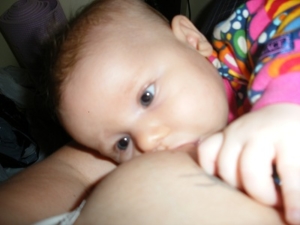
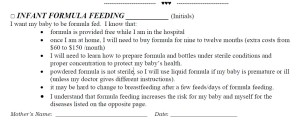

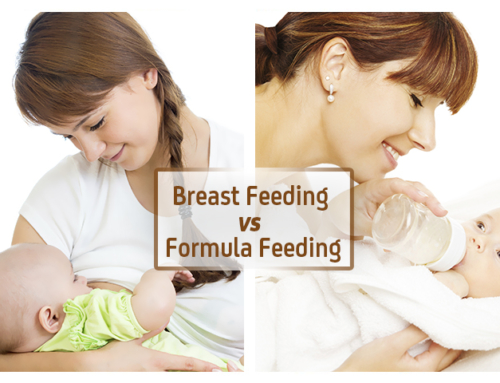
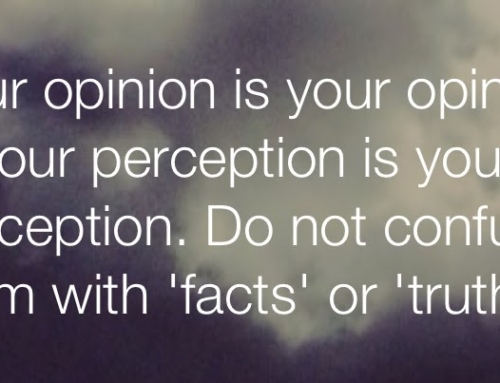
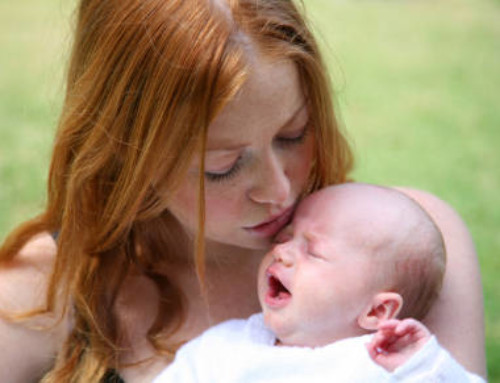

This is really not new. 15+ years ago there were contracts and they actually called them formula feeding contracts not breastfeeding contracts. They were drawn up to make parents aware of the risks involved with formula feeding and that they were not going to blame or sue the hospital or doctor if anything happened to their baby or later on to their child if something did develop.
There is really nothing wrong with the contract. It merely states the facts. There was a time when people wanted to be informed to make the best choices for their babies. Now it seems certain groups want to pretend that giving information is offensive to mothers and fathers. That it is condescending to give information as if they won’t already know it. WEll, I know that most people that I speak with are not aware of the risks of formula feeding and are surprised by the information. Many that have formula fed are angry that they were not told. Sure they had heard that, “breast is best” but they didn’t really know that their were actually risks involved with formula. They just thought that, “it’s only food I don’t eat the best food all of the time so what’s the big deal”. Women deserve to know about the risks.
Although I believe that the hospital had good intentions, much of the information in this contract really isn’t backed by the science.. They cite an archived 2007 US report for percentage risk reductions in several conditions, but if you read the actual report it doesn’t truly back all the claims made in the contract. Furthermore, most recent research does not find that breastfeeding can aid in prevention of obesity, diabetes, or Inflammatory bowel disease and the research on childhood cancers is mixed at best.
Breastfeeding is great, but to stretch the truth on the risks of formula feeding seems a little unkind to me, especially when breastfeeding can be difficult for so many women.
Rumor has it that they are revising the form. I hope that they will do a more thorough review of the available research in order to give their patients more accurate, evidence based information.
I would like to see what research you are referring to Anne. The research I have read links formula feeding to obesity, gut problems, allergies, and more.
I was a woman who could not breastfeed my first. It was emotional, and I was scarred for some time – I sought out an online support group to work through some of it. However, I do not think that sharing information about the risks of formula feeding is ‘unkind’ to me. If anything, as a formula feeder it’s even more important to know the risks so I could know what things to look out for in my child.
Hi Jewel —
I’m sorry that breastfeeding didn’t work out for you –I had trouble myself as well.
Here are a few studies on a few conditions —(I actually pared it down and can post more if you want) What studies have you seen that do find breastmilk protective? I have not seen too much recently.
Most research I have seen says that breastfeeding can help with diarrhea, constipation, and some other GI issues. Possibly ear and respiratory infections —
For of the long term benefits there is more of an association, rather than a causal relationship. Breastfed babies have less obesity, diabetes, lower IQ’s, but healthier, wealthier more educated women breastfeed at higher rates, so anything that can be tied with poverty, ill health, and low education can be tied with not breastfeeding —–
Anyway -here are some studies–I hope this helps–your kid will be fine!!!
Anne
Obesity.
http://jama.jamanetwork.com/article.aspx?articleid=1667089 2013 Effect of ……..
http://www.ncbi.nlm.nih.gov/pubmed/24170411 2013 Effect of breastfeeding….meta-analysis
http://www.ncbi.nlm.nih.gov/pubmed/22924637 2012 Duration of breastfeeding ….
http://www.ncbi.nlm.nih.gov/pubmed/25153224 2014 Early infant feeding …..
http://www.ncbi.nlm.nih.gov/pubmed/24551043 2014 Early life Course Risk Factors..
http://www.ncbi.nlm.nih.gov/pubmed/17452993 2007 A longitudinal study of infant feeding and obesity
http://www.ncbi.nlm.nih.gov/pubmed/21276279 2011 Breastfeeding and growth until 3….
Diabetes
http://www.ncbi.nlm.nih.gov/pubmed/22837371 2012 Review of Studies
http://www.ncbi.nlm.nih.gov/pubmed/20852257 2010 Infant feeding patterns and cardiovascular risk factors…….(diabetes and obesity)
http://www.ncbi.nlm.nih.gov/pubmed/20507546 2010 Maternal and neonatal risk factors for childhood type one diabetes
http://www.ncbi.nlm.nih.gov/pubmed/19183310 2008 Childhood BMI, breastfeeding and type 1 diabetes
http://www.ncbi.nlm.nih.gov/pubmed/19263185 2009 Early infant feeding and type one Diabetes
Eczema
http://www.ncbi.nlm.nih.gov/pubmed/21883137 2014 Lack of evidence…
http://www.ncbi.nlm.nih.gov/pubmed/24342028 2013 Breastfeeding and risk of AD….
http://www.ncbi.nlm.nih.gov/pubmed/24313809 2013 Perinatal factors…..
http://www.ncbi.nlm.nih.gov/pubmed/22822349 2012 Overview of reviews
Asthma/Allergies
http://www.ncbi.nlm.nih.gov/pubmed/22373843 2012 Determinants of Asthma
http://www.ncbi.nlm.nih.gov/pubmed/24298900 2014 Breastfeeding and wheeze (samples—3700)
http://www.ncbi.nlm.nih.gov/pubmed/21980940 2011 meta-analysis investigating breast feeding and childhood wheezing illness
http://www.ncbi.nlm.nih.gov/pubmed/18769191 2008 Breastfeeding and allergies: Time for a change in paradigm? ..
http://www.ncbi.nlm.nih.gov/pubmed/18839293 2009. Early infant feeding and illness… .
http://jama.jamanetwork.com/article.aspx?articleid=209119 2007 Breastfeeding is not protective for allergies and asthma JAMA
http://www.ncbi.nlm.nih.gov/pubmed/25129677 2014 Influence of early life exposures….
http://www.ncbi.nlm.nih.gov/pubmed/23083457 2012 BF and atopic dermatitis/food allergies
http://www.ncbi.nlm.nih.gov/pubmed/18727470 Breastfeeding and prevalence of allergic disease ………….2008
.
http://pediatrics.aappublications.org/content/134/Supplement_1/S13.full.pdf+html Breastfeeding and risk of infections at 6 years.
No associations were found between breastfeeding and colds/upper
respiratory tract, lung, or urinary tract infections
IQ
http://www.ncbi.nlm.nih.gov/pubmed/20184592 2010 Effects of breastfeeding on cognitive….
http://www.ncbi.nlm.nih.gov/pubmed/24236109 2013 Predictors of intelligence…
http://www.ncbi.nlm.nih.gov/pubmed/24354838 2013 Effects of breastfeeding…..
http://www.ncbi.nlm.nih.gov/pubmed/24268637 2013 Breastfeeding, parenting…